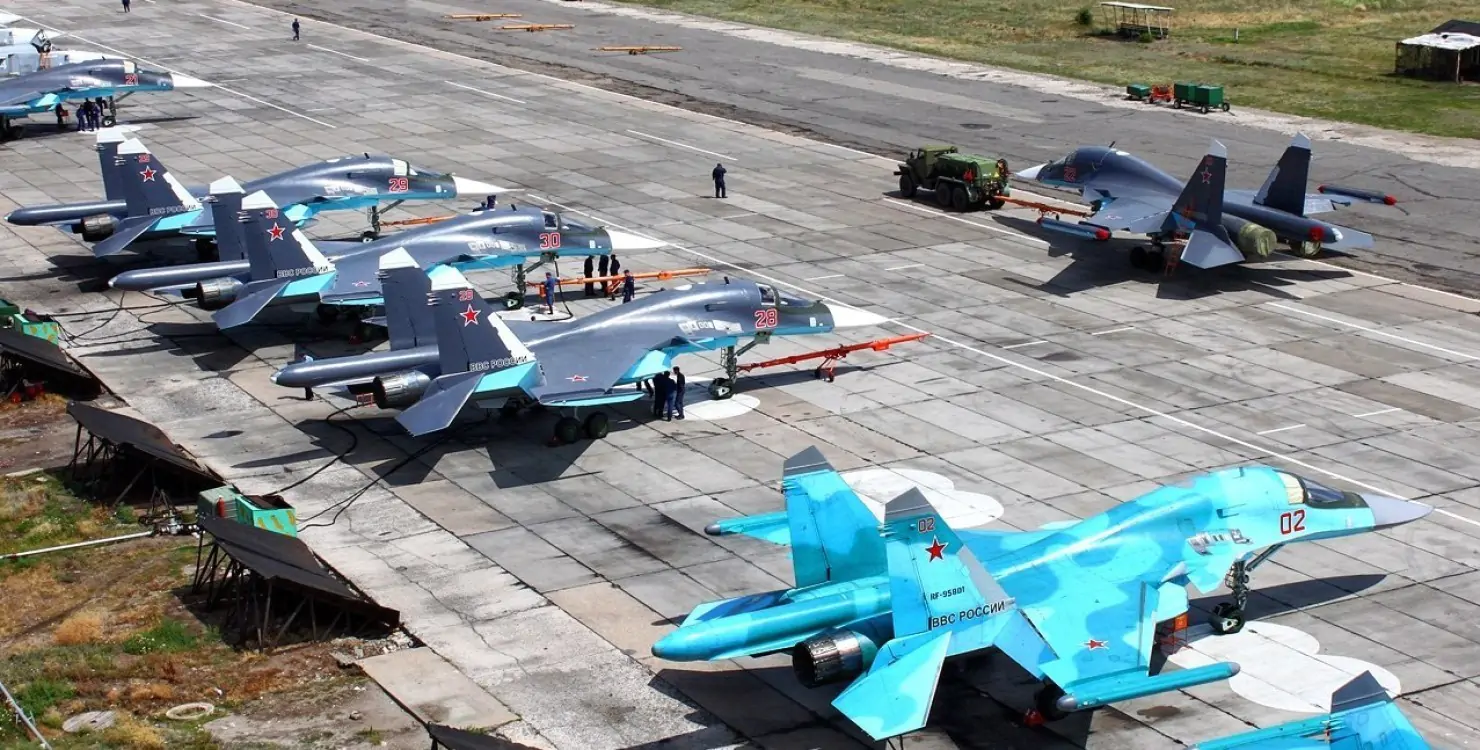About a week after Russian President Vladimir Putin dismissed his longtime defense minister Sergei Shoigu, on Tuesday, he gave the axe to the deputy defense minister as well. Putin replaced Col. Gen. Yuriy Sadovenko with Oleg Savelyev, an accountant.
Sadovenko, 52, who was born in Zhytomyr, then the Soviet Socialist Republic of Ukraine, was a decorated combat veteran who graduated from Ryazan Higher Airborne Command School. He has been replaced with an administrator who served most recently as an auditor for the Federation Council.
JOIN US ON TELEGRAM
Follow our coverage of the war on the @Kyivpost_official.
This shift from a military officer to a business-minded accountant mirrors Putin’s move to replace Shoigu with an economist with no military experience, Andrey Belousov.
Analysts from the Institute for the Study of War (ISW) observed: “Savelyev’s appointment is consistent with the Kremlin’s effort to improve the wartime economy, given that Savelyev has an extensive background in economics and experience in overseeing the audits of defense, national security, and law enforcement activities.”
The think-tank added that Russian bloggers have noted that Belousov is beginning to form his team within the ministry.
Also this week, Putin fired presidential advisor Alexandra Levitskaya. The ISW said the reasons for this move were “unclear.”
In an inaugural speech last week, Belousov described his plans for “optimization” of military budgets, so that “every ruble... will have a maximum effect.”

Russia, Ukraine Exchange Over 300 POWs Ahead of New Year’s Eve
Every ruble will go to war.
— Jürgen Nauditt 🇩🇪🇺🇦 (@jurgen_nauditt) May 14, 2024
The new head of the Ministry of Defense, Belousov, also announced a deterioration in the lives of russians.
The official says that now the entire economy will be directed to “the needs of the Northern Military District.”
Development? The science?… pic.twitter.com/4obNxL12jx
EC green-lights about €3 billion in first tranche of frozen Russian asset fund for Kyiv
Brussels on Tuesday approved the first installment of a proposed fund that would draw on the profits of hundreds of billions of euros in seized Russian assets and send the money to Kyiv as assistance.
“Speed remains of the essence and the Commission will continue making all efforts to allow the first payment to be made already in July,” said Valdis Dombrovskis, the European Commission’s Executive Vice-President for an Economy that Works for People.
The EU will allocate all the funds received from Russian assets to the Ukraine Facility, a four-year economic assistance program for Ukraine. The EC said the first payment will be between €2.5 billion and €3 billion.
Ukrinform: Zelensky emphasizes that elections will not happen during martial law
According to state media outlet Ukrinform, President Volodymyr Zelensky reiterated that, although his presidential term expired on May 20, elections will not be held while the country is at war.
“My five years are not over yet. They continue due to martial law,” Zelensky was quoted by Ukrinform as saying. (The state news agency referenced his exclusive interview with Reuters on Monday, although the remarks were not found on the posted version of the story.)
The president added he was glad that “he is the President of such a people who did not turn their back, did not run anywhere, but defended everything they could… “Independence doesn’t just happen without trials. It’s a shame that they are so challenging,” Zelensky said.
Ukrinform added that Ruslan Stefanchuk, chairman of Ukraine’s unicameral parliament, the Verkhovna Rada, said the next presidential elections would be held within 60 days after martial law is lifted.
“According to the Kyiv International Institute of Sociology (KIIS), in September 2023, more than 80 percent of citizens believed it was not the right time for elections,” a recent opinion piece from Ukrinform reads. “Civil society shared the same opinion: more than 100 NGOs and movements signed the relevant statement on the Civil Network OPORA platform. A consensus was also formed among political forces: in November 2023, heads of parliamentary factions, including opposition, signed a memorandum agreeing that free and fair national elections should be held in the post-war period.”
In an interview with The New York Times, President Volodymyr Zelensky of Ukraine urged the U.S. and Europe to do more to defend his nation, as his army struggles to fend off Russian advances all across the front. Read the interview transcript here. https://t.co/e1QTNhuVgn pic.twitter.com/mvAoRwG4p3
— The New York Times (@nytimes) May 21, 2024
Border Guards blow up Russian boats and big guns
The State Border Guard Service of Ukraine (DPSU), a smaller and less-heralded Ukrainian Armed Forces (AFU) branch has reported increased engagements recently as attacks intensify along the northeastern border, especially.
On Tuesday, the DPSU destroyed a camouflaged artillery system and accompanying Russian troops in the Zaporizhzhia region, using combat drones.
That same day, a Border Guard drone destroyed two small Russian boats on the “southern front.” An exact location of the strike was not released.
“By accurately dropping ammunition using an FPV drone, the defenders hit two small enemy boats,” a statement from the Border Guards said.
Прикордонники знищили два російських човни на південному напрямку
— Українська правда ✌️ (@ukrpravda_news) May 21, 2024
Відео - ДПСУ pic.twitter.com/OgIs08q8gl
Russian forces move nuclear missiles to “designated positions” in the first stage of exercises
On Tuesday Russia’s Ministry of Defense began the first stage of training in the “preparation and use of non-strategic nuclear weapons,” the Ministry announced on Telegram.
“In accordance with the instructions of the Supreme Commander-in-Chief of the Armed Forces of the Russian Federation, the first stage of exercises with practical testing of the preparation and use of non-strategic nuclear weapons began in the Southern Military District under the leadership of the General Staff of the RF Armed Forces,” the post reads.
“As part of this stage, the personnel of the missile formations of the Southern Military District are practicing combat training tasks of obtaining special ammunition for the Iskander operational-tactical missile system, equipping launch vehicles with them and covertly advancing to the designated position area in preparation for missile launches.”
Earlier this month, when Putin first ordered the drills, he said they were designed to deter military involvement in Ukraine by the West.
You can also highlight the text and press Ctrl + Enter









